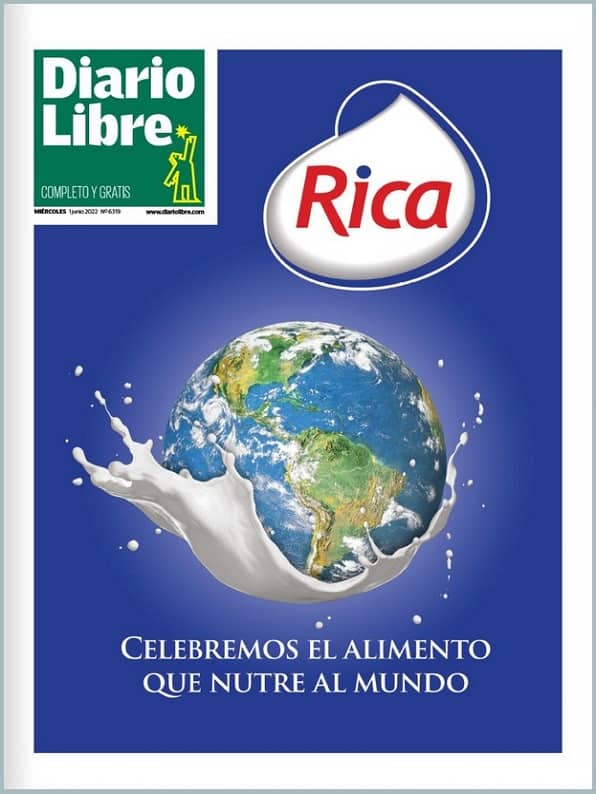Zica: another viral threat in the Caribbean carried by a mosquito
Public Health orders vigilance by the system of dengue and Chikungunya
SAN JUAN/SD. The Caribbean Public Health Agency (Carpha) yesterday asked the health authorities of the region to be on the alert over the possible arrival to the region of the Zica virus, transmitted by the same mosquito responsible for dengue and Chikungunya.
"The symptoms of the Zica virus are very light but similar to Chikungunya. Both are transmitted by the bite of the Aedes Aegypti mosquito responsible for the dengue and Chikungunya epidemics," said yesterday Christian Fredrickson, a doctor of Carpha.
This call takes place after the government of Jamaica announced this week a campaign of public awareness in the population regarding the existence of Zica, a disease which has infected more than 16 persons in Brazil during the month of May.
In addition, the announcement takes place on the eve of the day that marks one year from the confirmation of the presence of Chikungunya in Puerto Rico and nearly a year and a half after this virus was detected for the first time in America.
Fredrickson indicated that the Zica and Chikungunya are "two completely different viruses" in regard to their genetic structure, because the first is a flavivirus (a type of arbovirus that causes a wide range of diseases in humans, including yellow fever, dengue, and West Nile fever. It is spread by ticks or mosquitoes) while the second is an alphavirus.
This last type of virus, according to his explanation, manages to avoid the defense system against infection of the organs and manages to reproduce itself without depending on the F - two Alpha factor, which is essential to generate new proteins and therefore imperfections.
No cases in the DR
Last Monday the National System of Epidemiological vigilance, part of the Directorate of Epidemiology of Public Health, ordered the intensification of preventive actions and control of Zica through the existing channels of vigilance for dengue and Chikungunya.
In its weekly bulletin they indicated that there is no vaccination or specific treatment, so that the treatment is fundamentally symptomatic, after excluding diseases such as malaria and dengue or bacterial infections.
Origin
The Zica virus was isolated for the first time in 1947 in blood samples of monkeys of the Zica forest (Uganda) utilized in projects for the control of yellow fever. This is an indemnity virus of West Africa but cases have now been registered sporadically in Asia and Oceania, as well as an epidemic situation in Malaysia and Micronesia in 2007. In America until recently they had only confirmed its presence on Easter Island (Chile).
"The symptoms of the Zica virus are very light but similar to Chikungunya. Both are transmitted by the bite of the Aedes Aegypti mosquito responsible for the dengue and Chikungunya epidemics," said yesterday Christian Fredrickson, a doctor of Carpha.
This call takes place after the government of Jamaica announced this week a campaign of public awareness in the population regarding the existence of Zica, a disease which has infected more than 16 persons in Brazil during the month of May.
In addition, the announcement takes place on the eve of the day that marks one year from the confirmation of the presence of Chikungunya in Puerto Rico and nearly a year and a half after this virus was detected for the first time in America.
Fredrickson indicated that the Zica and Chikungunya are "two completely different viruses" in regard to their genetic structure, because the first is a flavivirus (a type of arbovirus that causes a wide range of diseases in humans, including yellow fever, dengue, and West Nile fever. It is spread by ticks or mosquitoes) while the second is an alphavirus.
This last type of virus, according to his explanation, manages to avoid the defense system against infection of the organs and manages to reproduce itself without depending on the F - two Alpha factor, which is essential to generate new proteins and therefore imperfections.
No cases in the DR
Last Monday the National System of Epidemiological vigilance, part of the Directorate of Epidemiology of Public Health, ordered the intensification of preventive actions and control of Zica through the existing channels of vigilance for dengue and Chikungunya.
In its weekly bulletin they indicated that there is no vaccination or specific treatment, so that the treatment is fundamentally symptomatic, after excluding diseases such as malaria and dengue or bacterial infections.
Origin
The Zica virus was isolated for the first time in 1947 in blood samples of monkeys of the Zica forest (Uganda) utilized in projects for the control of yellow fever. This is an indemnity virus of West Africa but cases have now been registered sporadically in Asia and Oceania, as well as an epidemic situation in Malaysia and Micronesia in 2007. In America until recently they had only confirmed its presence on Easter Island (Chile).


 Diario Libre
Diario Libre Diario Libre
Diario Libre